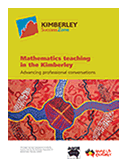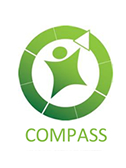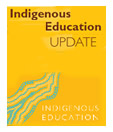Home > Indigenous Learners > Resources > Weblinks
Weblinks
Weblinks are member shared online links to resources to support the teaching of mathematics and relevant to Aboriginal and Torres Strait Islander education.
ACER Research Indigenous
2016
- Next steps: measuring reading progress ( Jan 2016)
- Engaging Indigenous education ( Jan 2016)
- Assessment for Indigenous learners ( Feb)
- Closing the gap: Indigenous students and NAPLAN (Mar 2016)
2015
- University completions and equity (May 2015)
- Group-based solutions risk ignoring individuality (Jun 2015)
- Indigenous research: learning together (Nov 2015)
2014
- Listening to the school community (Jan 2014)
- A way forward in improving Indigenous learning (Feb 2014)
- Remote school’s first graduates (Feb 2014)
- The post-school transitions of Indigenous learners (Apr 2014)
- Learning, earning and yearning (Aug 2014)
- Supporting Indigenous educational researchers (Sep 2014)
- Revisiting Indigenous primary school experiences (Sep 2014)
- Addressing educational disadvantage ( Sep 2014)
- Revisiting Indigenous student engagement and retention ( Oct 2014)
2013
- ACER Research Conference 2011 - Lessons learned ( Mar 2013)
- In profile: Stephanie Armstrong, Indigenous Research Fellow (Mar 2013)
- Pathways to work for Indigenous Australians (Jul 2013)
- Indigenous student maths achievement in context (Dec 2013)
2012
8 Ways
There is a shift we need to make in the teaching of maths in Indigenous contexts. Rather than trying to bring out the culture in maths, we need to bring out the maths in culture.
ACER: The Learning Ground
Learning Ground is the Australian Council of Educational Research ( ACER) gateway to the latest national and international publications focusing on Indigenous education. Learning Ground spans early childhood, post school education, adult learning, and encompasses areas such as cultural diversity, parent and community engagement, wellbeing, identity and oral language.
With over 9,100 searchable books, articles, conference papers and reports on Indigenous education from publishers in Australia and overseas, Learning Ground is an ideal first stop for policy makers, educators and graduate students. Moreover, Learning Ground is an ideal place for scholars to disseminate their work to the national and international indigenous education community.
Aboriginal perspectives for all learners
Mathematics Learners:
- experience relevant and real contexts for mathematics (see Contextualising mathematics R-7, DECS, 1996)
- critically analyse statistical information about Aboriginal people
- investigate differing mathematical concepts amongst Aboriginal and other cultures
- use different methods to map, make scale models, use scale drawings
- read relevant sections of the Aboriginal perspectives across the curriculum folder and obtain the 'Aboriginal perspectives in mathematics’ handout from the Aboriginal Education reference library
Indigenous mathematics: Creating an equitable learning environment
This summary by Dr Grace Sarra provides an overview of how a change in school leadership can successfully address competencies in complex situations and thus create a positive learning environment in which Indigenous students can excel in their learning rather than accept a culture that inhibits school improvement.
Mathematics has long been an area that has held back Indigenous students in improving their learning outcomes, as it is a Eurocentric subject (Rothbaum, Weisz, Pott, Miyake & Morelli, 2000:De Plevitz, 2007) and does not contextualise pedagogy with Indigenous culture and perspectives (Matthews, Cooper & Baturo, 2007).
Accelerated Indigenous Mathematics
The Accelerated Indigenous Mathematics (AIM) program has been researched, developed, trialled and refined by the YuMi Deadly Centre (YDC) at Queensland University of Technology. The AIM program is based on years 3–9 of the Australian Curriculum: mathematics, and can be used in any Australian school.
Resources and Teaching Strategies to Support Aboriginal Children’s Numeracy Learning
Resources and Teaching Strategies to Support Aboriginal Children’s Numeracy Learning: A review of the literature by Tracey Frigo, June 1999
This project was commissioned by the Office of the Board of Studies NSW. The views expressed by the authors do not necessarily reflect the views of the Office of the Board of Studies NSW.
Shaping an Indigenous future in Engineering
Australian Universities are uniting in their commitment to greater representation of Indigenous Australians in the field of Engineering.
The Partners for Pathways project aims to create scholarships and devise strategies to promote pathways into engineering and remove barriers to entry for Indigenous and other students who do not have the STEM pre-requisites.
Make it count
Make it count is for educators working with Aboriginal and Torres Strait Islander learners in mathematics education.
Mathematics Education in the Kimberley
'Mathematics teaching in the Kimberley: Advancing professional conversations' is for classroom practitioners wanting to develop their pedagogy and improve learning outcomes for their Aboriginal and Torres Strait Islander students.
Compass Assessment by ACER
COMPASS is a unique new literacy and numeracy assessment resource developed by the Australian Council for Educational Research (ACER), a world leader in educational research and assessment development.
ATSIMA National
ATSIMA is a newly formed, Indigenous led non-profit member-based group representing organisations, communities, institutes and individuals around Australia. We aim to inspire, promote and support improved mathematics outcomes of Aboriginal and Torres Strait Islander students.
MATSITI
The MATSITI Project aims to increase the number of Aboriginal and Torres Strait Islander teachers to foster student engagement and improving educational outcomes for Indigenous and non-Indigenous students.
Dare to Lead
Dare to Lead began as a Commonwealth funded national project with a focus on improving educational outcomes for Indigenous students.
What Works
What Works The Work Program helps schools plan and take action on improving outcomes for Indigenous students.
ACER Indigenous education research
The following links are key documents focusing on numeracy, mathematics and Indigenous education.
Engagement with mathematics in the early years
Elizabeth Warren and Eva Devries report on activities that have been successfully used with young Indigenous students.








